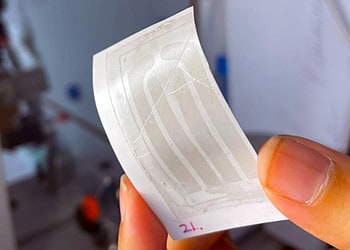I was recently telling you about graphene, the wonder material that promises to bring significant technological advancements – and the promise is almost delivered. A team of researchers from Manchester have developed a sandwich-like architecture that is one step closer to replacing silicone.
Graphene is, in (extremely) light terms, a one atom thick planar sheet of carbon. The material, the thinnest in the world, is also the toughest in the world, and, to make it even better, it’s an extremely good conductor; all these remarkable qualities have branded it as the wonder material of the future, and for good reasons.
Writing the study in Nature Physics, the study shows how the layers of graphene could look in the nearby future.
“Creating the multilayer structure has allowed us to isolate graphene from negative influence of the environment and control graphene’s electronic properties in a way it was impossible before,” said Leonid Ponomarenko, who led the study.
The discovery of the material, which earned a Nobel prize, is just the first step in the journey.
It’s technically important that our demonstration shows that graphene encapsulated within boron nitride offers the best and most advanced platform for future graphene electronics,” said professor Andre Geim, who last year won a Nobel Prize for physics for his work on graphene.
There are many benefits of using graphene, but there are also numerous problems to solve before using this material. However, things are moving in the right direction.
“It solves several nasty issues about graphene’s stability and quality that were hanging for long time as dark clouds over the future road for graphene electronics.”
“We did this on a small scale but experience shows that everything with graphene can be scaled up,” Geim said. “It could be only a matter of several months before we have encapsulated graphene transistors with characteristics better than previously demonstrated.”
The material’s outstanding properties, could mean (among many others) bendy, touch screen phones and computers, lighter aircraft, wallpaper-thin HD TV sets and superfast internet connections – and all in the nearby future.
Via IB Times







